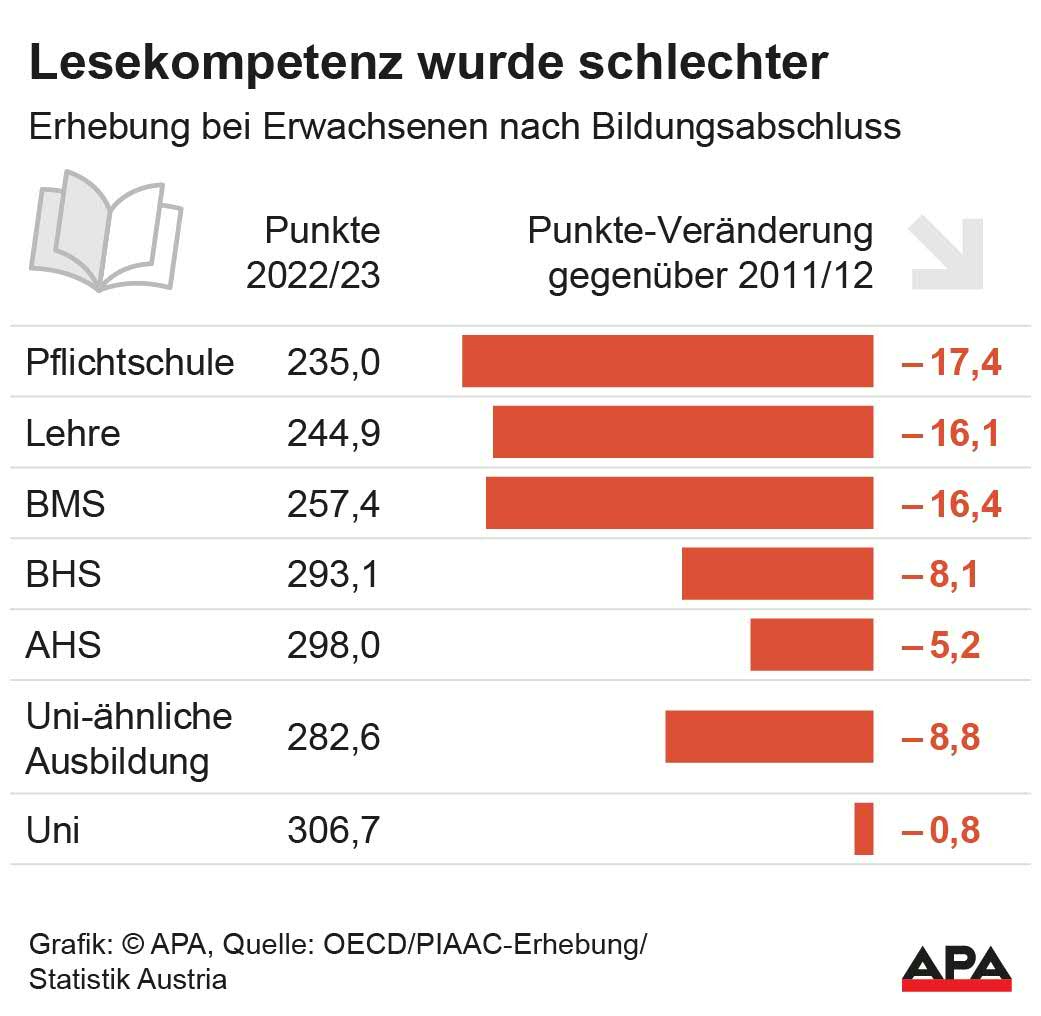"Adult PISA" Shows Disastrous Development of Reading Skills

As early as December 2024, the results of the "Programme for the International Assessment of Adult Competencies" (PIAAC) were published. Even then, it was evident that since the last survey in 2011, the group of 16 to 65-year-olds with reading problems had practically doubled to 29 percent. Compared to the other 30 countries that participated in PIAAC, Austria landed significantly below the OECD average in reading (254 compared to 260 points) - in 2011, it was still above the OECD average.
Reading Competencies of Adults Diverge
In their results report published on Tuesday, the statisticians have now looked at the results in detail and identified certain groups responsible for the decline, while the results for others did not significantly deteriorate. For example, the decline in reading competence was mainly attributable to the older cohorts.
On the one hand, the average reading scores generally decrease with increasing age, and on the other hand, in the cohort comparison between 2011 and 2022/23, declines were only observed in the older groups. While there were no significant changes among the 16 to 24-year-olds and the 25 to 34-year-olds, there were significant deteriorations among the 35 to 44-year-olds, the 45 to 54-year-olds, and the 55 to 65-year-olds.
The situation is similar when it comes to development by educational attainment: Here, too, there are different developments - while reading competence has significantly deteriorated among those with lower educational qualifications (maximum compulsory schooling, apprenticeship, or vocational middle school/BMS), this is not the case for higher qualifications.

"Adult PISA": Differences Also Among Occupational Groups
This is also reflected in the individual occupational groups: No significant declines in reading abilities were recorded among managers, academic professions, technicians, and office workers, but they were among service professions, agricultural and forestry workers, craftsmen, and unskilled workers. Interestingly, part-time employees have a higher reading level than full-time employees - this is attributed to the higher proportion of academics among part-timers.
There are also differences among the so-called non-working persons, i.e., those who are neither employed nor unemployed. Pupils and students remained roughly stable in terms of competence, while significant deteriorations were registered among retirees and so-called homemakers (such as housewives).
Reading activity has also changed: In Austria, there is less reading both in leisure time and at the workplace. This is a marked difference compared to Germany: There, no changes in leisure time and even higher reading activity at the workplace were recorded. Regarding individual reading sources, Statistics Austria shows a particularly strong decline in the consumption of so-called "complex" reading materials (articles in newspapers, magazines, and newsletters) in Austria, which was less pronounced in Germany. At the same time, an increase in reading shorter texts (emails, letters, notes) was recorded in both countries - this increase is stronger in Germany.
(APA/Red.)
This article has been automatically translated, read the original article here.





